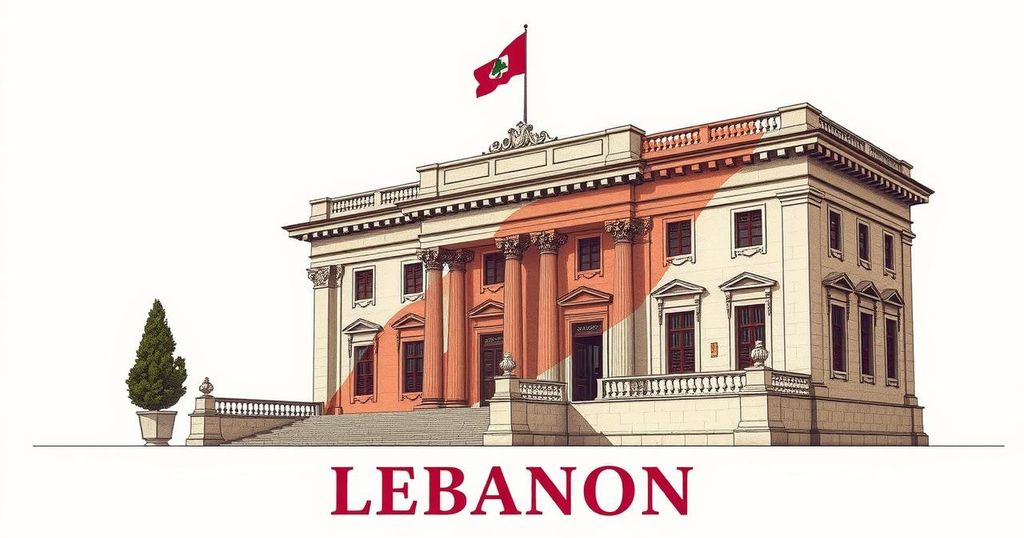Hezbollah’s Influence in Lebanon Amid Political Transition Challenges

Lebanon has elected a new president and prime minister, leading to discussions about the potential weakening of Hezbollah, which has dominated the political landscape for years. Recent setbacks for Hezbollah, including losses in conflicts and diminished support from Syria, suggest an evolving political climate. The new leaders aim to unite the nation and affirm state control over arms, posing challenges to Hezbollah’s traditional dominance.
Recent political changes in Lebanon, with the emergence of a new president and prime minister, have sparked discussions regarding the potential weakening of Hezbollah, a dominant Shia political and military group in the region. For two decades, Hezbollah has maintained considerable influence; however, recent setbacks, including significant losses during conflicts with Israel and a diminished regional ally in Syria, appear to have challenged its power.
Hezbollah’s influence was apparent in its support for Joseph Aoun’s presidential candidacy and its original backing of Najib Mikati as prime minister, which shifted to abstention when it became evident that Nawaf Salam would likely succeed. This political maneuvering illustrates Hezbollah’s reduced capacity to dominate the political landscape, as highlighted by its frustration over Salam’s ascendancy.
Nawaf Salam, as prime minister, aims to unite the Lebanese population and address the repercussions of Israel’s military actions, which primarily affected Shia regions. Both Aoun and Salam advocate for state control over weapons, signaling a potential decline in Hezbollah’s military supremacy. The new leadership’s commitment to rebuilding infrastructure offers an avenue for Hezbollah’s engagement in the political sphere.
Hezbollah’s formidable past, characterized by military interventions and significant political clout, faces challenges from a more united Lebanese front. The decline of the Assad regime has limited Hezbollah’s resources, compelling the group to adapt to changing political dynamics and consider a conciliatory path toward governance.
Both Aoun and Salam’s commitment to rebuilding and seeking international aid might prompt Hezbollah to cooperate within the new governing framework, despite its historical position of dominance. Acknowledging its fundamental role, Hezbollah requires adaptation to the evolving political landscape while navigating significant domestic and foreign challenges.
Lebanon’s political factions have historically exploited the political system, which remains deeply sectarian. Aoun and Salam confront an entrenched system resistant to reform, requiring a delicate approach to governance that recognizes and integrates the diverse community needs within Lebanon.
The support for Salam reflects optimism among Lebanese citizens regarding potential reforms and accountability in governance. His designation as prime minister could serve as a catalyst for change, promoting a more modern, civil state governed by the rule of law. Such a transformation may allow the government to address pressing issues while restoring public trust.
The current political dynamics in Lebanon are markedly evolving, with recent leadership transitions indicating a shift in the power balance. Hezbollah, historically one of the preeminent forces in Lebanon, faces potential challenges from a newly unified political front, as the Lebanese public expresses hopes for governance reform. The context of these changes includes a backdrop of international pressures, regional shifts, and internal demands for accountability and reconstruction following conflicts that have plagued the nation for decades.
In conclusion, Hezbollah’s historical political and military predominance may be waning as Lebanon’s new leadership under Aoun and Salam endeavors to reshape the governance landscape. The group’s past advantages are confronted with new dynamics that emphasize the necessity for political adaptation and inclusivity. The commitment of the new leaders to rebuilding and state control over arms could redefine Hezbollah’s role, ushering in an era of potential reform and greater accountability in Lebanese politics.
Original Source: www.aljazeera.com








